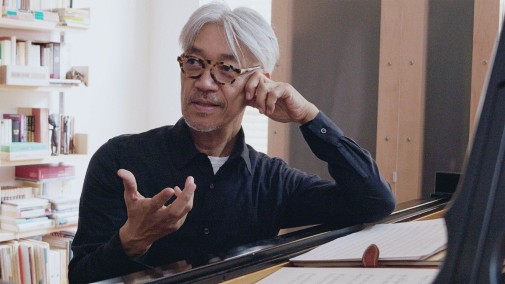
Ryuichi Sakamoto is a master of music that needs no introduction. Thanks to his work with the Yellow Magic Orchestra and solo experiments, Sakamoto has helped shape the evolution of electronic music like few other artists in the past decades. His avant-garde sound is difficult to confuse with that of other composers, but he's not an artist predisposed to repetition or stagnation. Since the 1970s, has never stopped composing, never stopped challenging himself, or dazzling his audience with music whose beauty transcends comprehension. Sakamoto's also an avid cinephile and had been writing film scores since the 80s when Nagisa Oshima cast him in Merry Christmas, Mr. Lawrence. Across the years, he's built an eclectic filmography that's rich in artistic brio and lacking in mediocre efforts. He even won an Oscar.
Because of such excellence, the Criterion Channel has curated a selection of 10 Ryuichi Sakamoto scored pictures. Here are some highlights…
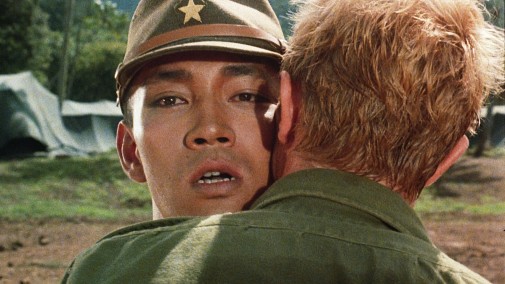
MERRY CHRISTMAS, MR. LAWRENCE (1983)
Nagisa Oshima's Merry Christmas, Mr. Lawrence is a savage attack on the ideals of militaristic masculinity and wartime valor, both in the context of Japanese culture and Western society. While not as graphic nor as shameless as the director's previous In the Realm of the Senses and Empire of Passion, the flick is no less invested in the breaking of taboos. Based on the autobiographical books of Sir Laurens van der Post, it's a tragedy laced with homoerotic longing that portrays the going-ons of a Japanese prisoners camp during World War II. For the role of Captain Yonoi, who becomes enthralled with the South African officer played by David Bowie, Oshima wanted another Rockstar – Ryuichi Sakamoto. Still, the young musician would only act in the movie if Oshima let him compose the score.
The result was a hypnotic dream of synth and piano which encompasses the concepts of brutality and gentleness that fight within the narrative. Years later, when Oshima was making his last film, another portrayal of militarism and homosexual desire, he contacted Sakamoto again. 1999's Taboo, which is also available on the Criterion Channel, is another masterpiece of cinema and music.
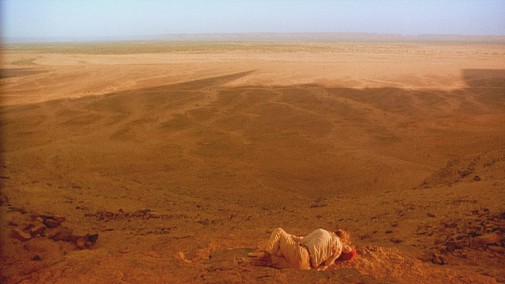
THE SHELTERING SKY (1990)
As with Oshima, Ryuichi Sakamoto's collaboration with Bernardo Bertolucci started when the Italian auteur hired him as an actor. During the shooting of 1987's The Last Emperor where the composer played a small role, Bertolucci asked Sakamoto to compose some music to be played during a gala sequence. Afterward, the producers contacted the composer – they wanted more. That work earned Sakamoto an Oscar and started a three-picture adventure between him and Bertolucci. Their second film was The Sheltering Sky, an adaptation of Paul Bowles' eponymous novel about two American travelers losing themselves in the Algerian landscape. The movie, which stars Debra Winger and John Malkovich, is a most ravishing bit of existential terror, so beautiful it hurts, and Sakamoto's score is a big part of that inebriating quality.
During the 90s, Sakamoto would work on other prestigeous literary adaptations. For the movie version of The Handmaid's Tale, his music underlines the violence of Gilead, while 1992's Wuthering Heights saw the Japanese composer create some of his most romantic symphonies. Both movies are available on the Criterion Channel.
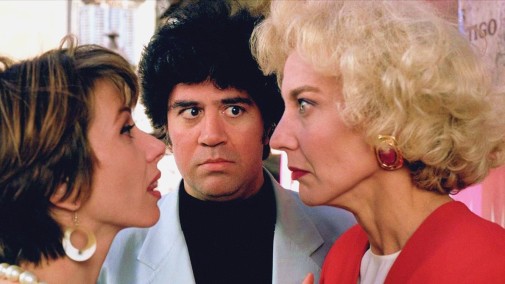
HIGH HEELS (1991)
When we think of Sakamoto's music, the lush, often lurid, emotion of melodrama might not immediately come to mind. There's a serenity to his work, a harmonious balance that doesn't seem to fit with the demands of the classic melodrama. However, Sakamoto was up for the challenge of scoring such a picture when Spanish auteur Pedro Almodóvar asked him to write the score of High Heels. That Sirkian tale of sex and murder, motherly absence and filial fury, is brimming with voluptuous sentiment that erupts with plenty of style, with colorful costumes and opulent sound. With such extraordinary form and inspired performances by Victoria Abril and Marisa Paredes, High Heels is essential viewing for any actressexual fan of Sakamoto and Almodóvar.
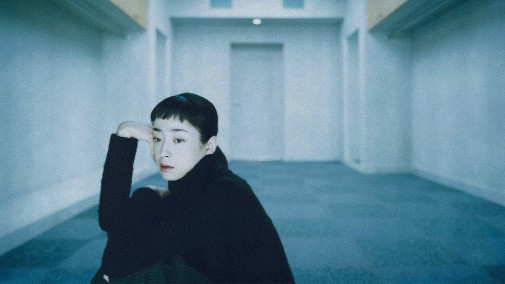
TONY TAKITANI (2004)
Jun Ichikawa's Tony Takitani is one of the best films ever made from a Haruki Murakami text. It tells the sad biography of its titular character, a technical illustrator whose wife seems to have both a look-a-like as well as a debilitating shopping addiction. Constructed out of languorous tracking shots that always move left to right, this is a film of synthesized melancholy, where the characters seem to be fading from existence in the same moment we observe them. It's a haunting picture, one that's only made more affecting by the ambiance provided by Sakamoto's music. Like all his projects, Tony Takitani possesses a beauty that's hard to describe and impossible to forget.
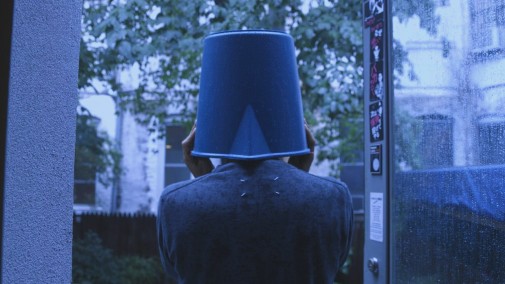
RYUICHI SAKAMOTO: CODA (2017)
In 2014, Ryuichi Sakamoto was diagnosed with throat cancer. After decades of non-stop work, in July of that same year, the composer announced a hiatus due to his struggling health. The following months saw him go through extensive chemotherapy which saved his life but left him exhausted, with no definite path to go forward. It was amid such a period of uncertainty that Sakamoto was contacted by director Alejandro González Iñárritu, asking him, with urgency, to come to America and do the soundtrack for his new movie, The Revenant. The creative labor of creating such a score is carefully captured in this beautiful documentary which also works as a meditation on human mortality, the composer's vocation, and his love for the craft. Few films have ever documented with such heartfelt detail the artistic process.
For another involving portrait of an artist and their work, the Criterion Channel is also streaming 1998's Love is the Devil: Study for a Portrait of Francis Bacon. Sakamoto's compositions for that picture are much closer to his avant-garde roots than the majority of his scores.
What's your favorite film score composed by Sakamoto?